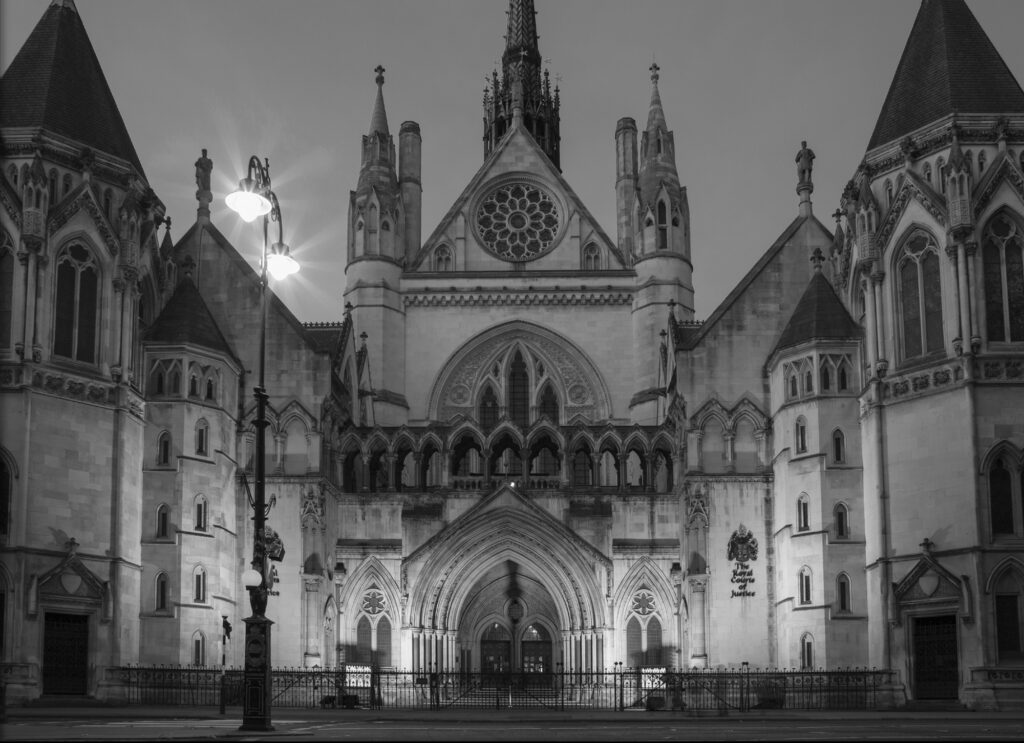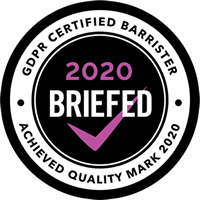
IsZo Capital LP v Nam Tai Property Inc BVIHC (COM) 2020/0165
18th March 2021
An Erskine Chambers team, comprising Martin Moore QC, Edward Davies QC and Ben Griffiths, together with Ogier counsel, Nick Burkill, succeeded in obtaining orders setting aside a $170 million allotment of shares in Nam Tai Property Inc. The allotment, by way of a private investment in public equity’, or ‘PIPE’, had been made in order to stave off an alleged liquidity crisis, said to arise from the threat that Nam Tai’s Chinese banks were about to call in all outstanding loans.
The proceedings were conducted on a highly expedited basis. The allotment was completed on 5 October 2020 and on 14 October the Claimant, IsZo Capital LP, obtained an ex parte injunction restraining the exercise of the rights attached to the newly allotted shares. Directions for trial were then given and the trial was conducted before Justice Adrian Jack in the Commercial Court of the British Virgin Islands entirely by video link, with evidence taken from witnesses in New York, Hong Kong and Macau over ten days in February 2021. Judgment was handed down on 3 March 2021.
Nam Tai is a NYSE-listed company registered in the British Virgin Islands. It was originally in the electronics business, but more recently became a property developer, focusing on the development of its former manufacturing sites in Shenzhen, China.
The largest shareholder in Nam Tai is Kaisa Group Holdings Ltd, a substantial Chinese conglomerate. Prior to the events giving rise to the proceedings, Kaisa held 23.9% of Nam Tai’s shares through its investment vehicle, Greater Sail Ltd. The remaining shares were predominantly held by US investors, including the Claimant, IsZo Capital LP.
In late 2019 a serious divergence of opinion emerged between the majority of the directors of Nam Tai, who were based in China and more or less affiliated with Kaisa, on the one hand, and some of the US investors, notably IsZo, on the other. The disagreement, in essence, concerned whether Nam Tai should be pursuing a strategy of acquiring more property at current market value for development, or seeking to maximise the potential return to shareholders from the existing properties, which had been acquired at historically low values, by offering to buy back shares. Those in control of Nam Tai wanted to make further investments, whereas IsZo (whose prime mover, Dr Sheehy, was described by the Judge as having a “red-in-tooth-and-claw approach to capitalism”) argued for the approach that maximised the shareholders’ return on investment.
When Nam Tai proceeded in March 2020 to make a further acquisition of land in Guangdon province for a price of RMB 705.48 million (i.e. in excess of $100 million), using up most of its cash reserves in the process, IsZo went public with its concerns. IsZo published letters in May and July 2020 heavily criticising Nam Tai’s board of directors, and complaining that, amongst other things, the company was being run in the interests of Kaisa. IsZo then set about garnering the necessary shareholder support (30%) for a requisition for a general meeting for the purposes of passing resolutions to replace the majority of the directors of Nam Tai. A requisition to that effect was then served on 11 September 2020 in accordance with section 82 of the BVI Business Companies Act 2004.
On 5 October 2020, little over three weeks after service of the requisition, the directors of Nam Tai approved a PIPE, by which $150 million worth of shares were allotted to Greater Sail and a further $25 million of shares were allotted to a new investor, West Ridge Investment Co Ltd, part of the Haitong banking group.
The central issue in the case was to identify the purpose for which the PIPE was carried out. IsZo claimed that the PIPE was for the improper purpose of ensuring that the proposed resolutions to replace the current board could be defeated on a vote of the members. It pointed to the simple facts that the PIPE came very shortly following the requisition and had the obvious effect of substantially increasing the number of votes that would be expected to be cast against any resolutions to change the existing board; Greater Sail’s shareholding increased from 23.9% to 43.9%. As such, the PIPE was a particularly flagrant instance of shares being allotted for the purposes of interfering with members’ decision-making. IsZo also complained that the PIPE was manifestly unfair to all the other members of Nam Tai, who were never given the opportunity to participate.
In response, Nam Tai, supported by Greater Sail, argued that the activist campaign that IsZo had conducted against the incumbent management, culminating in the requisition, had put Nam Tai in financial peril because, faced with the risk that the current board would be replaced, Nam Tai’s banks were threatening to call in their loans. In those circumstances, it was claimed that Nam Tai faced a ‘liquidity crisis’, and that the PIPE was for the purposes of rescuing the company from impending insolvency.
On behalf of Nam Tai, it was said that as a matter of Chinese banking practice, the mere fact that a Chinese bank had made a demand for repayment was enough to put the company in financial peril, because such a demand would be recorded on a public credit system and would result in all of the other banks making demands. Furthermore, it was said that where a Chinese bank issues a notice ‘reserving its rights’ as to demanding repayment, in practice this was to be treated as a threat that a demand for repayment was imminent. Nam Tai had received a number of such notices.
In those circumstances, Nam Tai argued that the PIPE was the only way of ensuring its survival. Whilst other forms of fund-raising, such as a bond issue, or rights issue, were allegedly considered, Nam Tai’s financial situation was said to be so grave that only a rapid private placement would suffice to reassure the banks. This argument was rejected by the Judge.
Instead, the Judge accepted the arguments put forward by IsZo, to the effect that the allotment had been made for an improper purpose and should be set aside. The decision turned on the Judge’s firm rejection of the evidence given by the directors to the effect that their purpose in approving the allotment had been to deal with an alleged ‘liquidity crisis’.
Having heard their cross examination, the Judge considered that the directors’ real purpose in procuring the allotment had been to ensure that the proposed resolutions to change the board could be defeated. In accordance with well-established principles, it was held that this attempt to shift the balance of power as between different members of the company was was not a proper purpose for the exercise of the power to allot shares: see Howard Smith Ltd v Ampol Petroleum Ltd [1974] AC 821. It followed that the directors had breached their duty under section 121 of the BVI Companies Act 2004.
On the basis of the finding that the directors’ true purpose had been to confer de facto control of the general meeting upon Kaisa, the decision that there had been a breach of the proper purposes doctrine was entirely orthodox. More noteworthy was the Judge’s approach to the consequences of that breach.
In particular, the Judge held that as a matter of BVI law the allotments pursuant to the PIPE were void, as opposed to being merely voidable. This reflected the outcome in Howard Smith v Ampol, but bucks the trend apparent in more recent English authorities (albeit not cases specifically concerning allotments of shares) of treating improper actions as voidable, not void; see, e.g. Eclairs Group Ltd v JKX Oil & Gas plc [2013] EWHC 2631 (Ch). Ultimately, this point did not matter in the present case because, as the Judge made clear, there were no grounds upon which to refuse to set aside the allotments in any event.
Greater Sail, as the principal recipient of shares under the PIPE, also put forward certain defences to be relied upon in the event that the directors were found to have breached their duties. Specifically, Greater Sail argued that even if the shares had been allotted for an improper purpose, the allotment should not be set aside because it was a bona fide purchaser for value without notice of the wrongdoing. The Judge rejected this argument on two bases: first, as a matter of law, it was held that the defence simply was not available where a decision to allot shares was impugned on grounds of breach of directors’ duties, and secondly, as a matter of fact, Greater Sail was unable to discharge the burden of establishing that it had acquired the shares without notice of wrongdoing, not least because it had failed to call either of its two directors as a witness.
Greater Sail also sought to invoke the ‘indoor management rule’, whereby a company is not permitted to call in aid some defect in its internal procedures for delegating authority as against a person who has dealt with the company in good faith. This principle is given statutory form in the British Virgin Islands under section 31 of the BVI Companies Act 2004. This argument was also rejected, for the simple reason that it was not the company that was seeking to impugn the allotment, but another shareholder, IsZo. Further, and in any event, Greater Sail could not bring itself within the operation of the rule because of the level of knowledge that it had about the PIPE.
The Judge also briefly addressed the issue that might arise if, contrary to his findings, the improper purpose of conferring voting control upon Kaisa / Greater Sail had not been shared by all of the directors who had voted in favour of the PIPE. The law as to the correct approach where different directors having different purposes is not settled, but the Judge indicated that he would still have set aside the allotments. The Judge, relying upon certain dicta of Murray Rosen QC in Re Last Lion Holdings Ltd [2018] EWHC 2347 (Ch), stated that any directors that proceeded on the footing that there was a liquidity crisis, would have acted on a false basis, having been led to do so by the conduct of Nam Tai’s chairman, Dr Tam, who had been principally responsible for orchestrating the PIPE. In those circumstances, it would be wrong to uphold their decision to approve the PIPE.



